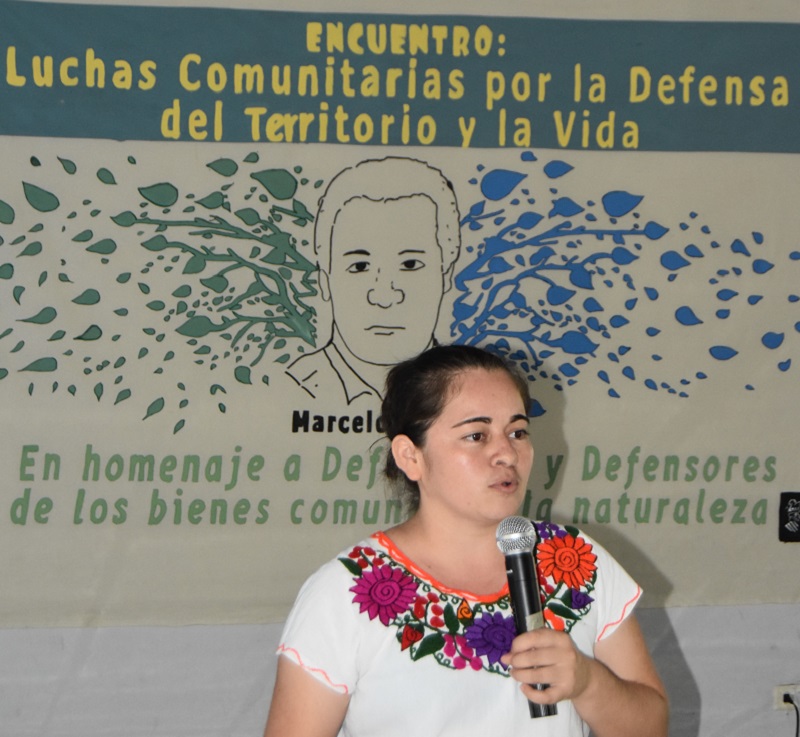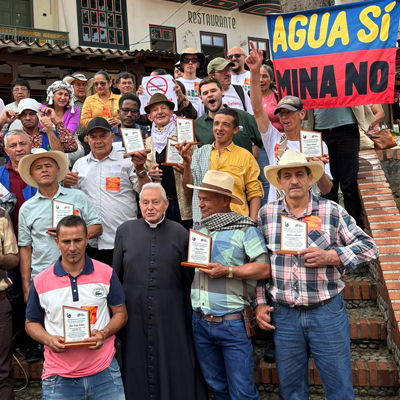Being a defender in Central America
Interview with Salvadoran defender Marta Rivas
 Marta Rivas
Marta Rivas
Marta Rivas was born 29 years ago in a settlement for Salvadoran refugees in Honduras known as “Mesa Grande”, where she lived with hundreds of children who grew up during the armed conflict that took place in El Salvador from 1980 to 1992.
She was named after her community: Santa Marta, located in Cabañas department, to the North of her country. Marta is member of the Association of Social and Economic Develompment (ADES), a grassroots organization that works together with peasant women, and the Latin American network of Women Defenders of Social and Environmental Rights.
“I am a young woman who has grown up with this historic and community memory”, she said about herself. “In my college life, I participated in mobilizations and sit-ins, but as I grew closer to the defense of territories and water, against mining projects that were being established in Cabañas, I became more involved in spaces built exclusively for women, understanding that women are the ones who have a closer relationship with the resources”.
In her work she has focused on “understanding how, in a context of violence –both social and promoted by extractivism- women are affected two or even three times more, and understanding that our levels of vulnerability are not the same than the ones faced by the men who defend the territories”.
Marta recently participated in the Central American Caravan “Women building territories” that started on January 7, 2018, in El Salvador to Guatemala, with the women resisting in La Puya and Mataquescuintla, which then travelled through Honduras, with members of COPINH and RENACAMIH and came to an end in San Salvador.
The Caravan “allowed to expose this atrocious violence brought by extractive projects in the territories and how this affects the women who decide to face these projects and the States that do not take into account the requests by the communities. It also exposed the invisibilization of women in the struggle, although they are becoming more and more visible”, said Rivas.
In a country where violence makes headlines, defending bodies-territories is a challenge that implies “exposing this violence against women inside their homes and working to destroy the patterns of behaviors and relationships within the families”.
“In these struggles I believe it is important to advocate for integral transformations together with men, so that they can unlearn and relearn new ways to build relationships, and so that we can separate ourselves from the belief that we were raised to only take care of others and learn that we can go beyond what we were taught to do”, concluded Rivas, a few days after having participated in the 9th Meeting and Assembly of the Latin American Network of Women Defenders of Social and Environmental Rights.




